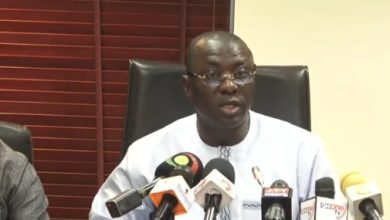Banks Set To Lose 60% Revenue Under DEP – Alex

Former Executive Director of Standard Chartered Bank, Mr Alexander Kofi-Mensah Mould, has warned the DEP will affect Banks.

According to him, if the debt exchange programme is carried out in its current form, it would result in banks losing as much as 60% of their revenue. Before the policy was introduced, stakeholders advised against the government’s expenditure and reckless borrowing.
To be blunt, most banks will be making losses when you combine this loss of income. With the high default rate on loans to SMEs and corporates. He cited.
Individual bond owners are also facing a possible head cut on their investments. Ghana’s IMF bail-out negotiations have stalled. According to reports, Ghana does not have a debt guarantee.
Read Also: How To Reach the Pizzaman-Chickenman Complaint Line and File an Official Complaint
Mr Alex took to his Facebook page to relay his options on the Debt Exchange Programme. He also advised the government to consider certain things.
The main implication of the proposed debt exchange would be a general slowdown of the economy and “we will either not grow as anticipated, and, perhaps, even not exceed 2% GDP growth this year. He said.
He said the government will have no other option than to cut down its discretionary expenditure. Other non-productive policy programmes should be stopped.
Read his post below.
Gov’t seems not to have thought through this debt exchange programme thoroughly; the economic contraction implications are dire!
There will be a general slow down of the economy and we will either not grow as anticipated, and, perhaps, even not exceed 2% GDP growth this year.
This will be due to less demand, which means that there will be less production, fewer imports, and fewer services being given to the populace.
Read Also: Ghana Airports Company Revised Covid Guidelines
Now, what does this mean for government revenue?!?
Since the demand of goods and services will go down, it means people will be paying less taxes. Additionally, due to reduced demand – a result of less discretionary expenses – there be fewer imports and as such there will be less duty and other excise taxes collected at the ports.
So, government revenue will plummet and they may fall short of making the projected revenue in the approved budget.

The DebtExchange, if carried out in its current form, will result in many banks not getting any income from Government Treasury Bonds they hold for almost 1.5 years! In some cases, this forms up to 60% of their revenue and is a huge contributor to their profits! To be blunt most banks will be making losses when you combine this loss of income to the high default rate on loans to SMEs and corporates.
With lower than expected revenue, Government will have no other option than to cut down its expenditure.
The first to go will be discretionary expenditure and other non productive policy programmes.
.
We also expect a reduction in the construction of new roads as well as a slow down in road maintenance, and a lot of non-essential govt workers’ salaries being delayed or not paid at all etc ie more expenditure accruals.Furthermore, with the statutory payments, like pension contributions, the situation will be worse than it currently is i.e. gov’t backlog of unpaid pension contributions of gov’t workers.
Gov’t needs to re-visit this debt exchange program, and create policies that will bring back confidence in the economy, as well as attract investment to spur on the economy; resulting in more spending and increased savings.
Before you go, kindly Follow Us for more exclusive news updates. Weare also on all social media platforms.



